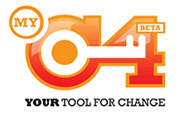 As reported in the past MYC4.com has serious operational problems making it an investment with negative ROI for the vast majority of lenders. MYC4 has taken measures to recover as much of the outstanding loan amounts as possible, but progress is very slow.
As reported in the past MYC4.com has serious operational problems making it an investment with negative ROI for the vast majority of lenders. MYC4 has taken measures to recover as much of the outstanding loan amounts as possible, but progress is very slow.
This is a quick update on the situation
Kenya / Provider Ebony:
The receivership has been in place for two months now, but has recovered only a small amount. The court case against Ebony Capital Ltd. is ongoing still awaiting a ruling. (see details)
Ivory Coast / Former providers Ivoire Credit and Notre Nation
The responsibility for collecting these loans has been turned over to TRIUM International in September 2009. In the 5 months since then TRIUM International collected 17,848 Euro. TRIUM has asked to be relieved of the contract as soon as possible (see details)
Senegal / Provider Birima
Repayments have been delayed. Birima cites technical problems and a bad economic situation in Senegal.
Uganda / Provider FED/CMC
FED seems to have the worst status. MYC4 reports that collections nearly stopped due to a lack of staff and working capital. Borrowers are said towithhold repayments in speculation on a collapse of FED/CMC.
MYC4 has defined 10 action steps for March and April. (see details)

